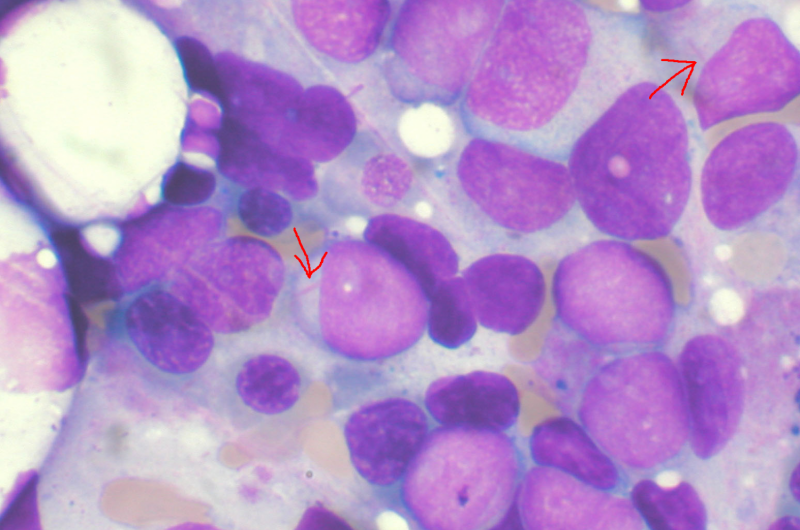Inhibitors support immune therapy for leukemia

New immune therapies are considered a promising lead for treating recurring acute myeloid leukemia (AML). Antibodies are able to eliminate even those cancer cells that cannot be removed via regular therapies. Scientists from the German Cancer Consortium (DKTK) and the Munich University Hospital and Tübingen University Hospital have shown that, in conjunction with certain inhibitors, this form of therapy could be successful in even more patients.
In the German Cancer Consortium (DKTK), the German Cancer Research Center (DKFZ) in Heidelberg joins up as a core center in long-term collaborations with partner university institutes and hospitals all over Germany that are specialized in research and treatment with a focus on oncology.
Acute Myeloid Leukemia (AML) is a malignant blood cancer variety, which derives from the immature precursors of red blood cells, platelets, and some white blood cells. AML is the most common acute leukemia in adults. For about a third of patients the cause of the uncontrolled cell division of the malignant cells is a mutation of the growth receptor FLT3. This is why cancer medicine pursues a variety of strategies in attacking this mutated receptor therapeutically, such as with inhibitors or antibodies in cancer immune therapy.
One such antibody was recently developed in the German Cancer Consortium (DKTK) and is now undergoing clinical trials at the Tübingen University Hospital. The FLT3 antibody marks leukemia cells which remain in the body after a seemingly successful chemotherapy. The marked blood cancer cells are then recognized by the body's own immune cells and will be eliminated.
"Immune therapy solely with the FLT3 antibody, however, is not always successful", explains Philipp Greif, DKTK junior group leader at Munich University Hospital (LMU)." In some cases the FLT3 receptor has mutated so much, that it has largely disappeared from the surface of the leukemia cell and is therefore no longer accessible to the antibody.
In a collaborative study, both the Tübingen and Munich scientists examined the possibility of successfully treating AML via a combination of both substances. They used special inhibitors, so-called kinase inhibitors, in order to bring the mutated FLT3 receptor back to the surface in order to make it susceptible to immune therapy again. This way, more AML cells were able to be eliminated. "The combination of both treatments worked much better in our pre-clinical trials than just one active substance", said Katrin Reiter, first author of the study.
Both FLT3 inhibitors and FLT3 antibodies are quite advanced in clinical trials. Recently the FLT3 inhibitor midostaurin was approved for use in combination with standard chemotherapy. Follow-up studies will now be conducted to determine which of the available inhibitors are the most suitable to be combined with the FLT3-based immune therapy.
More information: K Reiter et al, Tyrosine kinase inhibition increases the cell surface localization of FLT3-ITD and enhances FLT3-directed immunotherapy of acute myeloid leukemia, Leukemia (2017). DOI: 10.1038/leu.2017.257















